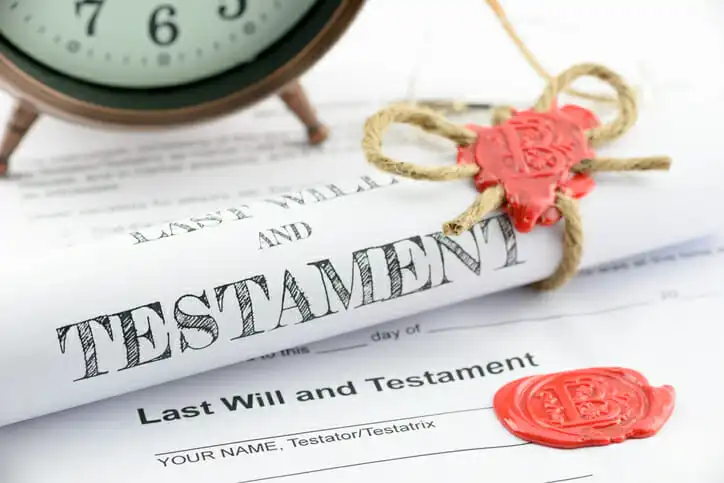If you die without naming a beneficiary for your 401(k) account, the rules for your retirement plan will likely require that funds in the account be considered part of your estate and have to go through probate. The probate process is governed by state laws that vary significantly, but can often add considerable cost and delay to settling your estate. You can avoid this by naming beneficiaries, including both primary and secondary ones, and reviewing your selections periodically or when major life events occur.
You can plan your estate with the help of a financial advisor.
Understanding 401(k) Beneficiaries
A 401(k) plan is a tax-advantaged way to save for retirement that many employers offer as a benefit. Plans often allow you to select how funds in the account will be invested, and all allow and encourage if not require you to name one or more beneficiaries.
The beneficiary can be almost anyone you want to be able to control and benefit from the assets in your 401(k) plan after your death. A beneficiary can be a person, such as a spouse or child, as well as a nonprofit charity, religious or educational institution or even a business or other legal entity.
Typically, 401(k) plans will ask you to name beneficiaries when you open these accounts. If you don’t, your plan may remind you from time to do this. It is to your benefit to do so because it enables easy and cost-free transfer of control of assets after your death.
Naming a beneficiary or beneficiaries helps ensure your assets will quickly and efficiently go to provide for family members or support favorite causes. When you name a beneficiary to your 401(k), that person or entity acquires a partial right of ownership to the account. On your death, that partial right becomes full ownership.
This process generally happens automatically on your death. One possible exception occurs when you name a beneficiary other than your spouse. In that case, some plans may require a letter of approval from your spouse before another beneficiary can take control of the account.
A beneficiary has a strong position when it comes to taking control of assets naming that person as beneficiary. For instance, if your will directs an asset to one person while the asset account lists another person as beneficiary, the account goes to the one named on the account, not the one named in the will.
You can name multiple beneficiaries, splitting assets in the accounts in any way you like. You can also name backup beneficiaries in case the person or persons named aren’t able or willing to take control of the 401(k). It’s a good idea to review the beneficiaries you have named from time to time or after major life events such as marriage, divorce or birth of a child, and possibly update them. Otherwise, you run the risk of someone such as an ex-spouse receiving assets you would rather direct elsewhere.
Understanding a 401(k) Without Beneficiaries

If you don’t name anyone as beneficiary to your 401(k), what happens to the assets in the account is determined by the rules on default beneficiaries set out in the documents controlling your retirement plan. These vary depending on the plan, but usually the spouse is the first default beneficiary, followed by any children and, finally, your estate.
If the default beneficiary comes into play, the process is different than if you had named a beneficiary. A named beneficiary gains control of the 401(k) automatically on your death without any delay or cost. However, a default beneficiary can take ownership of the account it generally will have to go through probate.
Probate is an estate-settlement process governed by state laws that vary widely. Sometimes probate can take years to complete and require paying significant fees and other costs. While this is going on, assets in your estate may be frozen so your surviving family members can’t access them.
A person named as beneficiary to your 401(k) may, at their option, be able to roll over the assets in to an IRA. This can help reduce taxes, among other advantages. However, if you don’t name a beneficiary and the plan directs the assets to a default beneficiary, a rollover may not be possible. That can lead the default beneficiary to have to pay more taxes on the transfer than otherwise.
How to Name a Beneficiary on Your 401(k)
Naming a beneficiary for your 401(k) is one of the most important, and often overlooked, steps in managing your retirement plan. Without a designated beneficiary, your account could be tied up in probate or distributed in ways that don’t align with your wishes. Fortunately, naming a beneficiary is simple and can usually be done in just a few minutes through your plan administrator. Taking this step ensures that your savings go directly to the people or causes you care about most.
Every 401(k) plan has its own rules for how beneficiaries are designated, so start by logging into your account or contacting your plan administrator. You’ll typically have the option to name both a primary beneficiary (the first person or entity to receive your assets) and a contingent beneficiary (who inherits the account if the primary beneficiary has passed away). Common choices include spouses, children, relatives, trusts, or charitable organizations.
If you’re married, federal law typically requires that your spouse be listed as the primary beneficiary unless they formally waive that right in writing. This rule is designed to protect spouses from being unintentionally disinherited. If you want to name someone else, such as a child from a previous relationship, you’ll need your spouse’s notarized consent before the change becomes valid.
Bottom Line

If you don’t name a beneficiary for your 401(k) plan, your plan’s rules will likely direct the assets to a default beneficiary, such as your spouse or children. Before a default beneficiary can gain control of the account, however, it will likely have to go through probate, adding time and cost to the process of settling your estate. You can avoid this by naming one or more beneficiaries, as well as backup beneficiaries, either when you establish the account or later on.
Retirement Tips for Beginners
- You can get help saving for retirement from a financial advisor. Finding a financial advisor doesn’t have to be hard. SmartAsset’s free tool matches you with vetted financial advisors who serve your area, and you can have a free introductory call with your advisor matches to decide which one you feel is right for you. If you’re ready to find an advisor who can help you achieve your financial goals, get started now.
- SmartAsset’s Retirement Calculator can help you turn a few data points including your location, age, income, current savings and amount and frequency of future contributions, into a forecast of how much money you’ll have when you are ready to retire.
Photo credit: ©iStock.com/JackF, ©iStock.com/William_Potter, ©iStock.com/FG Trade
